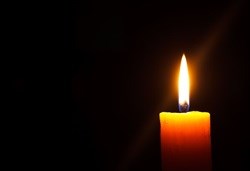
Top stories






More news

Marketing & Media
Warner Bros. was “nice to have” but not at any price, says Netflix

Logistics & Transport
Maersk reroutes sailings around Africa amid Red Sea constraints

















This is according to Simon Colman, underwriting executive at Stalker Hutchison Admiral (Pty) Ltd (SHA), who says as load-shedding becomes a regular occurrence, businesses and property owners may be unable to pass the proverbial buck. "They may have to accept that due to the re-occurrence and subsequently, the foreseeability of these outages, it may be found that there may have been reasonable precautions that should have been taken to protect their own customers from losses and injuries."
Colman refers to 'The Elevator Model' which says that businesses must adopt the worst case scenario from a risk perspective, assuming that they will be solely accountable for injuries and losses. "An elevator should be designed in such a way that if the power fails, it does not crash to the ground. This 'elevator' thinking is the way in which businesses and property owners operating in an erratic power environment should be dealing with risk."
For example, shopping mall owners and managers should have contingency measurements in place to ensure that customers can safely evacuate their premises during a sudden blackout. Failure to ensure that walkways, steps, escalators, doors, parking facilities, fire escapes and other areas are well-lit (either by generator, solar or battery operated) and free from any obstruction may result in the property owner/business owner being found liable for any injury caused to a customer during evacuation.
As power outages become a part of everyday life, the time may come when a simple diversion of accountability to Eskom will no longer be acceptable to our courts, says Colman. He points to alarm system manufacturers, restaurant owners, shopping malls and hospitals as specific examples of businesses that will need to put extra risk measurements in place to protect themselves from these types of liability claims in the future.